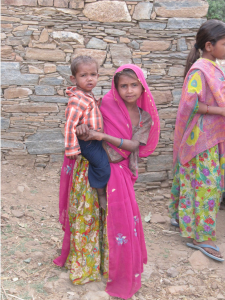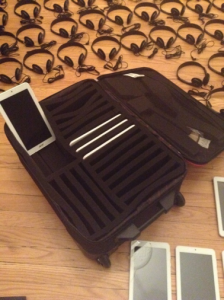January 2023
The Ice Storm – revisited…
Twenty-five years ago on January 4th, the rain began in what would become a once in a lifetime ice storm that nearly brought Montreal and the entire province of Quebec to its knees. In the middle of winter 1998, nearly five million Canadians in southeastern Quebec, eastern Ontario and parts of the Maritimes were without power–some for up to 35 days. Many of us still have vivid memories of those cold and dark weeks.
While the Canadian armed forces and the Red Cross were called in to rescue, shelter and feed those in need, thousands of Hydro-Quebec line specialists worked round the clock, supported by US linemen. The assistance they provided was essential, but the one thing that struck me as I read through the various accounts and reports is this: We managed to get through it all without even more catastrophic results because of the creativity, skills and community support of regular individuals everywhere.
Where help comes from
 This is where I see the parallel with the climate crisis today. It isn’t just government, the United Nations, the COP meetings or technological innovations that will get us through. It’s the hundreds of millions of people who will jump in with extraordinary solutions adapted to the very specific place where they live. By having access to a quality education, individuals gain the tools they need to protect themselves, their families and communities—and to provide safety nets to other nations. Ideas developed locally have the potential to help globally.
This is where I see the parallel with the climate crisis today. It isn’t just government, the United Nations, the COP meetings or technological innovations that will get us through. It’s the hundreds of millions of people who will jump in with extraordinary solutions adapted to the very specific place where they live. By having access to a quality education, individuals gain the tools they need to protect themselves, their families and communities—and to provide safety nets to other nations. Ideas developed locally have the potential to help globally.
Getting girls into school is one of only very few long-lasting, long-term solutions to climate change. We need every single person’s intelligence, expertise and agency to participate in changing the way we live to be in harmony with our planet. Girls and women must be at the decision-making tables, at every planning level, everywhere: economically, politically, environmentally, socially. Until there is gender equity and a place for every person to thrive, we’ll just be pushing out short-term solutions rather than holistic ones which take into account everyone’s needs and capabilities.
What we’re doing
This is why 60 million girls has expanded our R&D team to include 10 members working on finding the best ways to include climate action in the projects we support. We are reviewing cutting-edge content for climate mitigation in areas such as regenerative agriculture, sustainable building design and materials, protection against weather extremes and understanding climate change to add to our Mobile Learning Labs already in the field. We are connecting with youth climate activists around the world for girls and boys to learn from and work with in their own communities. We are speaking with other NGOs, think tanks and organizations in the fields of climate change, gender equity and education to find common links and support each other in making change happen in the most sustainable and effective ways possible.
Join us – whether it be through your critical donations that enable us to move new innovative projects forward or sharing what we do with others in your network, an important step in enabling 60 million girls to increase its reach and impact!
Together we can support the next generation with a brighter sustainable future.
Why do you support 60 million girls?
Robert Waller is a long-time donor to 60 million girls. He resides in Ottawa, where he works as a risk analyst for organizations (museums, libraries, archives) wishing to preserve their cultural property.
 During a trip to India, Rob was deeply affected by the people asking for money in the streets, especially women with infants in their arms. Upon his return, Rob studied how best to make an impact with his donations. He concluded that contributing to women’s education in developing countries would be an effective solution to helping and empowering these women. Rob searched for an organization focusing on education for women and discovered 60 million girls; since then, he has been an ardent supporter.
During a trip to India, Rob was deeply affected by the people asking for money in the streets, especially women with infants in their arms. Upon his return, Rob studied how best to make an impact with his donations. He concluded that contributing to women’s education in developing countries would be an effective solution to helping and empowering these women. Rob searched for an organization focusing on education for women and discovered 60 million girls; since then, he has been an ardent supporter.
Aside from being a generous contributor, Rob is creative in his ways of raising funds. For example, on his last birthday, instead of a present, he asked his friends and family to donate to the foundation through the Facebook fundraiser tool. He kickstarted it by adding some seed money of his own. Another innovative effort occurred during the COVID-19 restrictions when Rob organized a virtual viewing of the 60 million girls annual conference with a few friends, to get them to learn about the foundation and raise some funds. He is always on the lookout for new ways to contribute!
Rob’s philosophy: “it is not embarrassing to ask someone to donate; you are giving them an opportunity to do something good for their soul”. And we would add, something good for the whole world.
Thank you, Rob, for your long term, heart-felt and creative support!
Want to share your story?
Write us at info@60milliongirls.org and we can feature your story in our next newsletter.
A helping hand: a teacher’s story of perseverance from Montréal to Benin
Martin Chevalier teaches Ethics and Religious Culture at the high school level in Québec. Martin and his students have long been supporters of 60 million girls and closely follow the work we do. They were particularly inspired by the potential of our Mobile Learning Lab (MLL) model. In March 2020, he planned to take a group of 16 students to Benin. The students worked together to prepare the trip. Their goal was to raise funds for two MLLs which they succeeded in doing. Unfortunately, due to the pandemic, the trip was cancelled and the materials were stored away.
 Two years later, in the spring of 2022, Martin finally reconnected with Monseigneur Gnon Hossou, his coordinator of the project in Benin. They planned the trip again, but this time, there would be no students. It would only be Martin and his 9-year-old son. The plan was to set up one MLL for an after-school program in Dassa-Zoumé, and a second one at an orphanage in the capital, Porto Novo. When asked about his experience with the MLL, Martin admitted that it was full of surprises and that he often had to adapt along the way. For instance, he discovered that the school where the MLL was to be installed was actually a high school and not a primary school as he had been led to understand; the materials on the server were not suitable for this age group.
Two years later, in the spring of 2022, Martin finally reconnected with Monseigneur Gnon Hossou, his coordinator of the project in Benin. They planned the trip again, but this time, there would be no students. It would only be Martin and his 9-year-old son. The plan was to set up one MLL for an after-school program in Dassa-Zoumé, and a second one at an orphanage in the capital, Porto Novo. When asked about his experience with the MLL, Martin admitted that it was full of surprises and that he often had to adapt along the way. For instance, he discovered that the school where the MLL was to be installed was actually a high school and not a primary school as he had been led to understand; the materials on the server were not suitable for this age group.
Despite the unexpected situations, Martin was able to set up the MLLs at the school and at the orphanage. He highlighted that it is essential to have tech support nearby to ensure their sustainable functioning. In the case of the orphanage, assistance is provided by a local engineer. As for the second MLL, Martin uploaded new high school level content on the server. With the addition of this updated academic material, the MLL is now set up at the school library and is available for students to use.
Martin and his son had a memorable trip to Benin. He noted that the students he met were highly motivated to explore the content on the tablets and laptops. Currently, the traditional educational materials available to students are limited, especially at the orphanage. Martin knows that additional technological resources would make an enormous difference to their education.
Congratulations to Martin, his son and the students initially involved in the project in 2020 to have accomplished their goal with a huge dose of flexibility, perseverance and patience!
Follow us on Facebook, Instagram, Twitter and LinkedIn for updates on developments around the world in education and educational technology and the activities of 60 million girls.
